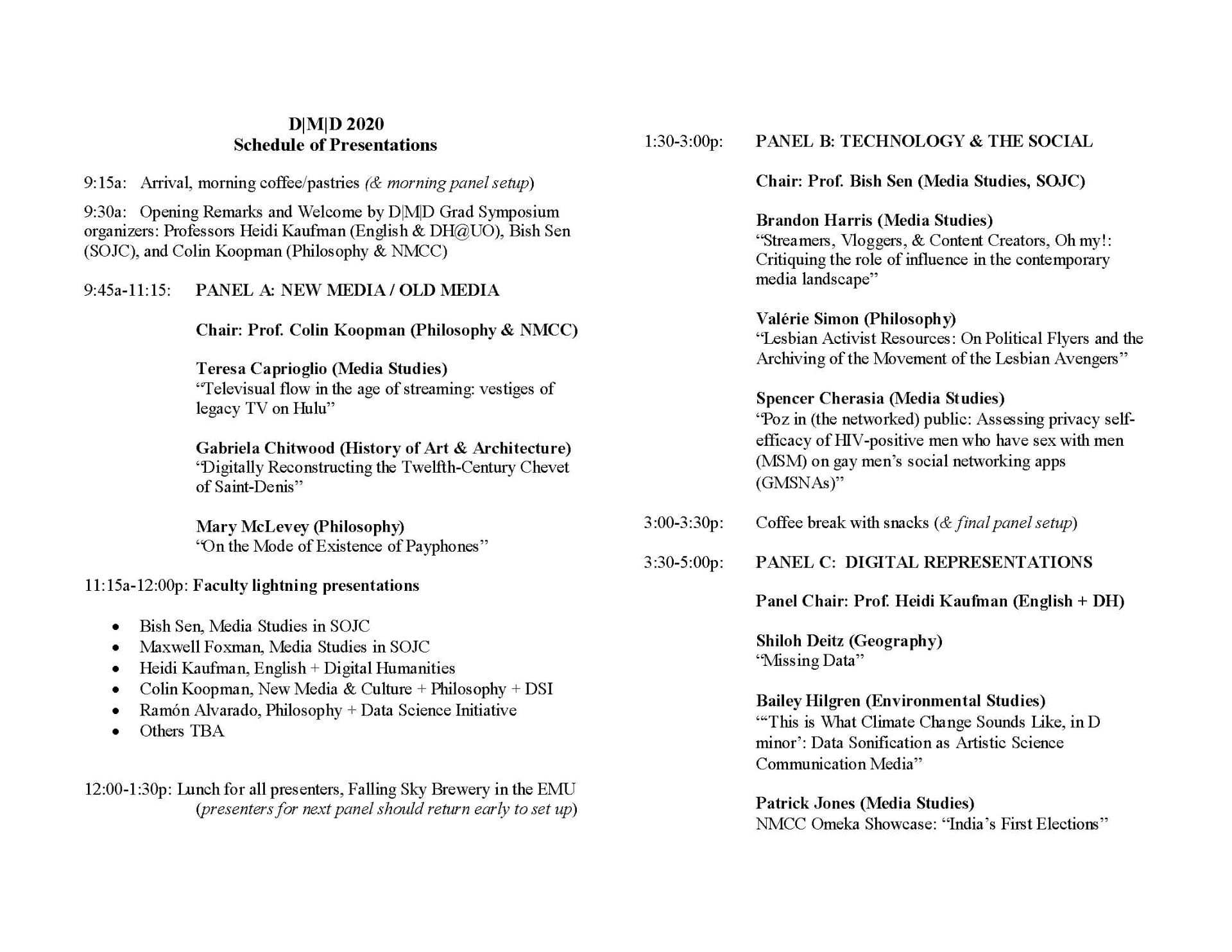Welcome back NMCC students and faculty affiliates!
At the beginnings of what promises to be a challenging school year, and after what was certainly a challenging summer, NMCC sends our students and faculty affiliates a note of welcome . We want to recognize that we return to a different campus this term, teaching and learning remotely, still reeling from weeks of wildfires, facing down the second wave of the pandemic, and enduring the unrelenting onslaught that is our contemporary political moment. We collectively hope that everyone is taking the time for self-care during these difficult times.
NMCC’s events and lectures will look a bit different this year as we won’t have on-campus visitors for at least Fall term (and quite possibly all year). However, we are hoping to present a series of videoconference lectures and workshops on topics ranging from AI to digital methods. If you have any ideas for speakers or topics for these kinds of events, please contact us at nmcc@uoregon.edu. We may even be able to help fund a speaker or event that you are interested in hosting. We are also hoping to hold our annual Data|Media|Digital Graduate Symposium in Winter or Spring term. If you have other ideas for ways of connecting with NMCC that would be valuable to you (maybe a dissertation workshop series?, new media talks from new UO faculty?), please reach out and we can help facilitate such events. Stay tuned to our blog, website, and social media for updates on these and future NMCC events.
As you get ready for your classes, we also want to draw your attention again to the list of NMCC-eligible courses. We updated this list over summer, so check it out to see if there’s a course of interest to you that can count toward your NMCC certificate
If you are receiving this email as a prospective NMCC student, know that the NMCC is here to support your interests and pursuits in digital technology, collaboration, or new approaches to scholarship. If you are consider adding the New Media and Culture certificate to your degree, reach out and let us know what questions you have. The New Media and Culture certificate is available to any graduate student in any department at all of UO’s colleges and schools. It is a flexible program that offers a way to diversify yourself within your field without adding additional time to your degree. For those interested in learning more about the certificate, please see our website for the director’s welcome and the answer to “Why NMCC?”. On our site, you can also find a FAQ, associated faculty, a list of new media courses , and application materials should you wish to apply.
Lastly, Colin and Patrick just wanted to again introduce ourselves as the NMCC leadership. Colin Koopman (Professor & Department Head of Philosophy) is the current Director of NMCC. He works on data politics, most recently in his 2019 book How We Became Our Data. He is looking forward to teaching the NMCC required common seminar this Spring in a new partnership with the Comparative Literature Department (note that the common seminar will also be offered in Winter through the School of Journalism and Communication). Patrick Jones (an advanced Ph.D. candidate in Media Studies in SOJC) is our social media coordinator and administrative assistant — he works on political technology, global media, and social movement politics.
Again, we welcome you all back and look forward to a fun, engaged year at the NMCC even under the circumstances.



